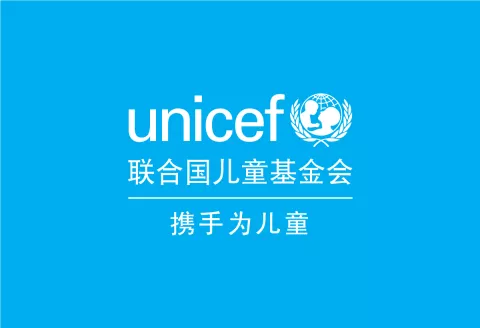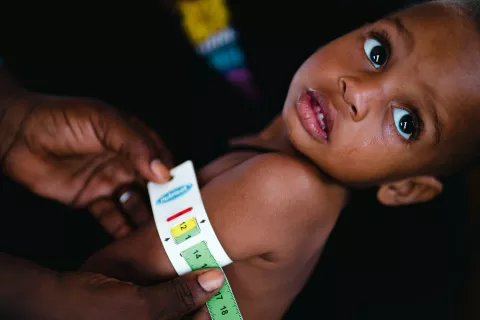Workshops Teach Children, Adults to Stand Up for Children's Rights
Workshops Teach Children, Adults to Stand Up for Children's Rights
- Available in:
- 中文
- English
She clambers up a rock, reaches both hands onto corners of the shabby cement wall and heaves herself up, being careful not to catch her school bag on the protruding bricks. She straddles the top and then jumps gingerly down onto the pebbled ground beside the railway line.
She leans into the curve of the track, lifts her right hand to shade her brow and trains her eyes on the light seeping through branches of a tall tree at the corner. Then, like a hare, she darts across the tracks.
About 60 more children will follow her – some giggling, pushing and shoving, others accompanied by their teachers, all on their way to Xinhua Elementary School of Tianzhu Tibetan Autonomous County, Gansu Province.
Four times a day, for 30 years, this has been the way to and from school for most of the children in Xinhua and no child has ever been hit by a train.
Capturing these scenes in a bunch of pictures is Pei Suping, an 11-year-old fifth grader of the school. Pointing to a photo of the tracks, the girl says, “I think a tunnel should be built for us. Otherwise, it's too dangerous. Children have the right to be protected.”
She also shot pictures of vendors' stalls that block the entrance to the school, saying they also “suggest children's rights are not fully protected.” Through capturing these moments on camera, Suping says she “became more aware of my living environment and learned to make suggestions to students and teachers.”
The term of children's rights was still alien to Suping a month ago. Nor did she know how to use a camera. “My parents always kept it to themselves, afraid I might break it. If I hadn't attended that workshop a month ago, I don't know when I might ever get to take a picture.”
Pei learned her new skills at a UNICEF-funded participatory training workshop on children's rights in Tianzhu in October. Forty teachers and 32 students aged 11-13 came together from five schools of the county for the three-day courses on knowledge of children's rights and the skills to realize these rights. At the end of the workshop, each school received one Kodak camera with 72 films for students to interpret children's rights through their own perspective.
The workshop forms one small but significant part of the UNICEF girls' education programs that started in 2005 in 12 project counties of five western provinces in China. Such programs focus on gender-sensitive, child-centered effective learning in a safe school environment, free of discrimination. The workshop was the first time in 26 years of UNICEF co-operation in China's educational projects that students and teachers sat and trained together about children's rights, says UNICEF educational project official Guo Xiaoping.
“Children should be the advocate for their own rights and become the watchdog to safeguard these rights,” she said at the opening of the workshop.
Four experts came from Beijing to root the theoretical principles in the children's minds. Students played games, held group discussions, drew pictures and charts: a new approach for village schoolchildren.
Liu Wenbo, a 10-year-old student of Chengguan Elementary School, illustrated children's rights by apples, with each apple representing one right: the right to be protected, the right to participate and the right to life, subsistence and development.
“I used to take a nap during classes at school,” he says. “But this workshop always keeps me busy and excited. It is more fun.”
Ba Tingting, 10, had thought the workshop was about how to improve English learning, “because it was supported by the United Nations.” But the student of Tianzhu Elementary School, affiliated with the Tianzhu Normal Institute, found it “more interesting than our English class.”
During a group discussion about the “four fundamental rights of children”, Tingting argued the right to parental care wasn't that important. “We should learn to take care of ourselves, and later on take care of our parents,” she said.
Schoolmate Qi Xiaoyun, 11, insisted that the right to privacy was much more important than food and clothes.
“Everybody has their own secret, and we children are no exception. I can have poor food to eat and old clothes to wear, but I need somewhere that only belongs to me,” said the fifth-grader.
Zhu Yue of Chengguan Elementary School has gained her own understanding of the right to protection. “We cannot always wait for others to protect us. Instead, we should learn to protect ourselves,” said the 11-year-old during the discussion.
“Through expressing their own thoughts, children can associate the literal meaning of rights with their daily life. More important, the participation itself is one of the children's rights,” says Chen Ying, one of the trainers who attended from the China National Children's Centre, an organization affiliated with the All-China Women's Federation.
Another trainer, Jiao Jian, a professor from China Women's University, agrees. “The values of democracy, including respect for the rights and dignity of all people, for their diversity and their right to participate are first learned in childhood and adolescence,” she says.
“Children know what is best for each other and it makes them happy. When they are involved, they can make a difference – for themselves and for their communities,” she says.
The mother of 10-year-old Wang Ling has noticed the difference after the girl attended the workshop.
“When she came back, my once-shy little girl talked to me a lot,” says Wang Shuxian. “She asked me not to read her diary any more, because she has the right to privacy. She told me not to always favour her younger brother because they are equal.”
The 33-year-old farmer stood outside their three-room brick bungalow in Shimen Town of the northwestern province, watching Wang Ling at play in the backyard. “I don't really understand what children's rights are, but my daughter's words sound right. Anyway, it's good to see her smiling face.”
Not every adult welcomes advice from a ten-year-old.
“Some grown-ups had no patience for our suggestions and asked us to go away,” said Ren Chengyu, 10, from Shuiquan Elementary School, during the presentation on her findings at a follow-up session of the workshop in late November.
“Even my father said to me: ‘Don't try to be my teacher. After you grow up, only then is it time for you to talk to me like that!' ”
Nevertheless, participation empowers children to contribute to their own subsistence, protection and development, explains Guo Xiaoping. Children's civil and political rights include the right to information, to expression, to decision-making and to association.
“Although the students are still young, they can remember one sentence or even one word from grown-ups for a lifetime,” she says. “So it is crucial for teachers and parents to create a proper environment to support children's participation to realize their own rights.”
Interacting with children is a learning process for adults and transforms that relationship, that's why teachers were also involved in the training workshop, says Guo. They were not only taught basic knowledge of children's rights, but also how to help students realize those rights.
“I felt students were more ready to raise their hands to answer questions here than they used to be in my class,” says teacher Wei Rong. “After all, sitting on this tiny, hard, cold wooden stool all day is not that easy,” she says, after sitting with her students in one classroom for three days.
When discussing a plan to improve student learning, Wei found her students often knew better than she did how to handle certain issues. “I wanted to set up a special class at weekends and invite teachers from other schools to give poor students special artistic training to enrich their after-school life.
“But the students thought that setting up a reading room alone was enough, because all the students, rich or poor, can sit together reading interesting storybooks and share them with each other.”
The 33-year-old Wei, with ten years' experience as a Chinese language teacher of Tianzhu Elementary School, admits it is more difficult to be a teacher than it used to be, because “students have so many channels to acquire information that they always raise harsh questions and ideas to challenge your authority.”
“One of the students named Sun Jialu told me during the discussion that there are no rich or poor, good or bad students, just female and male students,” Wei says.
Xinhua Elementary School's Chen Yufeng brought pictures taken by her four students, including those by Pei Suping, to the follow-up session, where officials from local educational bureaus and UNICEF were present.
“We had appealed to the county educational bureau many times on students' safety, but the situation just remains unchanged,” says Chen, a Chinese language teacher with 13 years' teaching experience.
“This time, with these pictures and student advocates, I hope more attention can be paid.”
Children's participation is a process, says Guo. “On the one hand, children's capacity to take part in the life of their family and community develops through participatory practice over time. On the other, the understanding and recognition of the power and potential of child and youth participation by grown-ups needs time to develop.”
For a place like Tianzhu Tibetan Autonomous County, with a population of 217,400 people coming from 16 ethnic groups, where earnings average 1,523 yuan (US$190) a year, a couple of workshops cannot wipe out traditional conceptions overnight.
“The dominant power of male grown-ups still prevails,” says Li Shengdi, deputy director of the Tianzhu Educational Bureau.
“I hope this training is like a bud planted in children's hearts, which can blossom in the future through the combined efforts of government, teachers, parents and students.”
Pei Suping is happy to hear the local educational bureau chief has seen her photos and promised the situation will soon be changed.
“I never thought anything could be changed when I took the picture. But if it really does, that will really inspire me,” she says.



